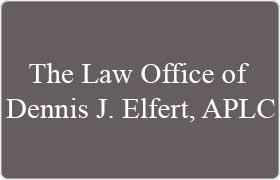 Mathews Estate Planning Lawyers, Louisiana
Mathews Estate Planning Lawyers, Louisiana
Sponsored Law Firm
-
 x
x

Click For More Info:
-
The Law Office of Dennis J. Elfert, APLC
522 Roussell St Houma, LA 70360» view mapEstate Law Over 25 Years Of Experience
Dennis Elfert is a practicing lawyer in the state of Louisiana who handles Social Security, Estate, Real Estate, and Accident and Injury matters.
985-655-3333
Includes: Gift Taxation
Warning! No lawyers found in this specified area.
Lawyers
1-0 of 0 matches



 Dennis Elfert Houma, LA
Dennis Elfert Houma, LA